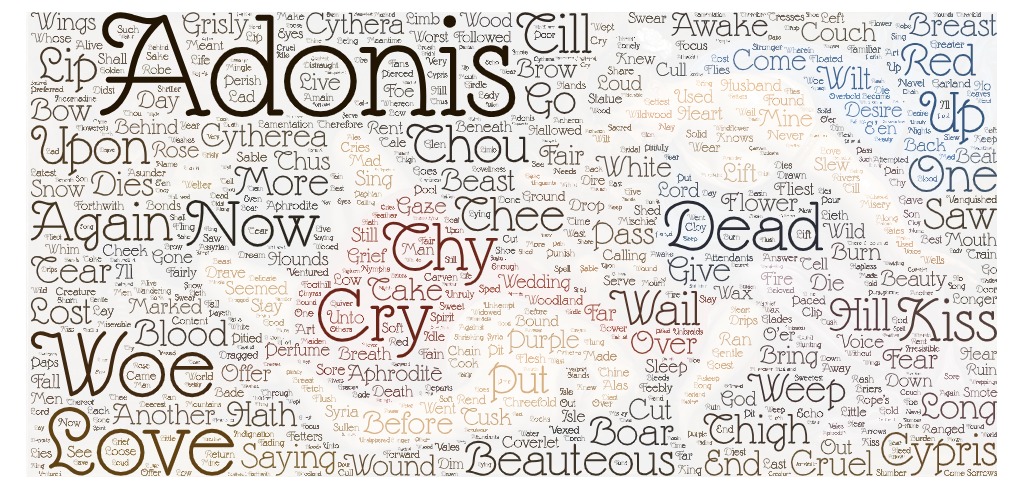Wail, wail, Ah for Adonis! He is lost to us, lovely Adonis!
Lost is lovely Adonis! The Loves respond with lamenting.
—from Bion’s Lament for Adonis, translated by John Addington Symonds
February’s Book Club selections are from laments and so-called bucolic poetry, with a focus on Adonis.
These poems refer to myths and rituals, and include laments for the beautiful dead Adonis; a lamentation by Heracles’ wife Megara to her mother-in-law Alcmena; poems of love and lust; and another lament, for Bion. There is also an Idyll relating to the festival for Adonis.
In the introduction to his translations, J.M. Edmonds[1] provides some information about some of these poets.
It seems the description “Bucolic” is not necessarily apt: he says of Bion,
The third of the Bucolic poets, as he was apparently recokoned in antiquity, was born at a little place called Phloassa near Smyrna. His pupil calls his poetry Dorian and connects him with Syracuse and the Muses of Sicily. But this may be no more biographical than his phrase “Bion the neatherd.” … it is unfortunate that most of the poems that have come down to us under his name, though all quoted as extracts from his Bucolica, are not really pastoral at all. It is noteworthy that Diognes calls him … a lyric poet.”
Moschus flourished around 150 (BCE), although Edmonds says that “None of Moschus’ extant works are really Bucolic; for the Lament for Bion is certainly by another hand.”[2] but includes him in the anthology.
About Theocritus, according to Edmonds,
…we have only a few short and not always consistent notes in the commentaries which are contained in the manuscripts. His poems tell us plainly that he was a native of Syracuse…Women at the Adonis Festival … must … have been written at Alexandria … [3]
and he calculates the date as between 278 and 270 (BCE).
You can read any translation you like (or the original Greek, available on Scaife.)
Links are to versions available free online:
Megara & Dead Adonis, translated by J.M. Edmonds
Online at theoi.com
Bion of Phlossa, The Lament for Adonis
Translated by J.M. Edmonds (along with other fragments)
Online at theoi.com
Translated by John Addington Symonds
Online at Digital Victorian Periodical Poetry
Translated by M.J. Chapman
Online at PoemHunter.com
Bion Lament for Adonis, and Lament for Bion (attributed to Moschus), translated by Harry Joshua Leon
Online at University of Pennsylvania
Moschus, translated by J.M. Edmonds
Online at theoi.com
Theocritus Idylls XXX The Death of Adonis, translated by C.S. Calverley
Online at Project Gutenberg
Theocritus Idylls XV: The Women at the Adonis Festival
translated by J.M. Edmonds
Online at theoi.com
translated by C.S. Calverley
Online at Project Gutenberg
Discussion will start and continue in the Forum, and we will meet via Zoom on Tuesday February 27 at 11 a.m. EST.
Happy readings!
1 The Greek Bucolic Poets. Translated by Edmonds, J M. Loeb Classical Library Volume 28. Cambridge, MA. Harvard University Press. 1912 page xxiii.
Introduction retrieved online at archive.org
2 Ibid page xxii
3 Ibid pages ix, xiii
